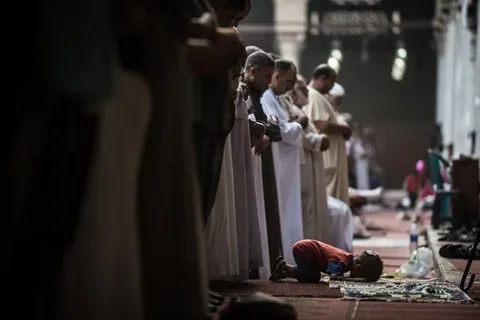
come to salah.
come to success.
What is Salah?
The Essence of Salah in Islam
Salah, a profound act of worship, holds immense significance in the Islamic faith. It gracefully follows the Shahada, acting as a testament to one’s unwavering faith. Drawing its essence from the Holy Qur’an and the invaluable teachings of Prophet Muhammad (peace be upon him), this mandatory prayer is observed five times daily. Each prayer serves as a reminder of Allah’s omnipresence, offering moments of reflection, gratitude, and connection.
Understanding the Five Daily Prayers
Fajr (The Morning Prayer)
As dawn breaks and the world stirs to life, Muslims begin their day with the Fajr prayer. It’s a sacred time, dedicated to immersing oneself in the remembrance of Allah, setting a serene tone for the day ahead.
Dhuhr (The Midday Prayer)
When the sun reaches its zenith, the Dhuhr prayer beckons. It acts as a midday oasis, offering a respite from worldly pursuits, allowing believers to reconnect with Allah and invoke His guidance.
‘Asr (The Afternoon Prayer)
As the afternoon ebbs, the ‘Asr prayer provides a timely pause. Amidst the hustle of daily life, from work commitments to family responsibilities, this prayer becomes an anchor, urging believers to contemplate Allah and the larger purpose of existence.
Maghrib (The Post-Sunset Prayer)
With the sun bidding adieu, the Maghrib prayer steps in. It’s an evening ritual, allowing Muslims to reflect on the day gone by, cherishing moments under the gentle guidance of Allah.
‘Isha (The Evening Prayer)
As darkness envelopes the world, the ‘Isha prayer emerges as a beacon of hope and reflection. Before surrendering to the embrace of the night, Muslims converge in thought, seeking Allah’s benevolence and thanking Him for His ceaseless blessings.
The Importance of Salah Times
In Islam, prayers are not just a means of worship but a way of life. They are intended to punctually punctuate the day, allowing Muslims to maintain a constant connection with their faith and Creator. The precise timing of these prayers is mentioned in the Quran and Hadith and is tied closely to the cycle of the sun throughout the day.
The Five Daily Prayers and Salah Times
- Fajr (Dawn Prayer): Starts at the break of true dawn, when the sky begins to lighten, and ends at sunrise.
- Dhuhr (Noon Prayer): Begins after the sun passes its zenith and starts its decline from the highest point in the sky and lasts until the shadow of an object is the same length as the object itself.
- Asr (Afternoon Prayer): The time for Asr begins after Dhuhr ends and lasts until just before sunset. There are two opinions on its specific timing: the majority opinion is when the shadow of an object is the same length as the object plus its shadow at noon, and the other opinion is twice the length.
- Maghrib (Evening Prayer): Begins immediately after sunset and lasts until the red light has left the sky in the west.
- Isha (Night Prayer): Starts when the red twilight is gone from the western horizon and lasts until midnight.

















